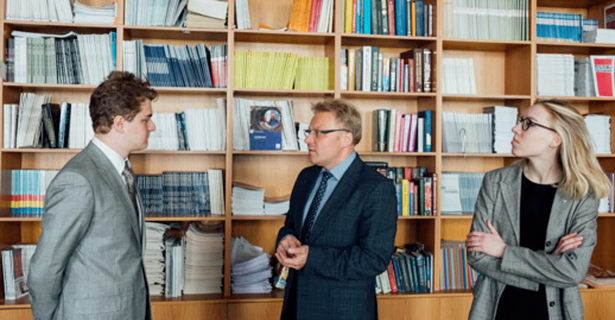I arrived in Moscow in the early hours of the 11th at our hotel not far from the center of Moscow in Chistye Prudy. Located in the Garden Ring of Moscow, we were able to easily access the city and get in touch with everyone from anti-fascist activists to representatives of Putin's United Russia Party.
We were fortunate enough to sit down with Dmitri Gudkov, the only independent MP in the Moscow area, a representative of the independent Yabloko Party, the second largest opposition party in Russia after Aleksei Navalny's Progress Party. He talked a lot about how as a politician he hopes his party is able to move beyond just seeking victory, but making real, lasting changes to the political history of the country. His opinions on the annexation were very interesting, characterizing the annexation as a purely political maneuver.
 Gudkov works with Open Russia, an organization until very recently led by Mikhail Khodorkovsky that aims to make the nature of Russian politics more transparent. Major protests took place across Russia on April 29th organized by Open Russia as a result of apparent attempts by the Russian government to make it impossible for citizens to issue letters of protest to the government. Given the situation, we felt it paramount to talk with Open Russia about this issue as it dealt with Russians' sense of political identity and power in Russia.
Gudkov works with Open Russia, an organization until very recently led by Mikhail Khodorkovsky that aims to make the nature of Russian politics more transparent. Major protests took place across Russia on April 29th organized by Open Russia as a result of apparent attempts by the Russian government to make it impossible for citizens to issue letters of protest to the government. Given the situation, we felt it paramount to talk with Open Russia about this issue as it dealt with Russians' sense of political identity and power in Russia.
 Alexander Soloviev, the current Director of Open Russia had a lot to say regarding the goals of these protests, stating that the system of issuing letters of protests was one of the last outlets for Russians' voices to be heard, given the illegitimate nature of the Russian voting system.
Alexander Soloviev, the current Director of Open Russia had a lot to say regarding the goals of these protests, stating that the system of issuing letters of protests was one of the last outlets for Russians' voices to be heard, given the illegitimate nature of the Russian voting system.
We felt it important to talk with academics as well as part of the project in addition to political activists. My colleagues Caio Duarte and Natasha Zamorskaya met with Professor Roman Lunkin from the Institute of Europe about Russian Identity, Law and Religion. He discussed in detail the significance of Russian holidays in solidifying senses of Russian identity on a religious, social and historical level. We were fortunate enough to be in Moscow for both Victory Day and Labor Day, holidays that are very important in Russian society today given the country's historical role in World War II, or, as it's called in Russia, the Great Patriotic War. Below is a photo from a Labor Day march with representatives of Russia's Communist Party

Independent from the project, we were surprised to find Sunday morning that a huge protest was taking place right near the Chistye Prudy metro station regarding the demolition of Khruschevka apartments. Most news sources estimated there being nearly 30,000 at the protest, making it the largest protest since those marking the assassination of Boris Nemtsov. It was very interesting to see Muscovites both young and old uniting to stand up to their local government. Below are some photos taken at the protest we found on Russian social media.
We have plans in the next few days to meet with more pro-Putin supporters in addition to other academics. Unfortunately, we've been denied access to a number of potential participants due to our lack of connections here in Russia, although we are hoping our constant cold calls can help us develop a holistic perspective on the annexation. Being close to the city center has also made it possible to reach out to journalists and politicians in person, bringing us closer to our project's goals.

